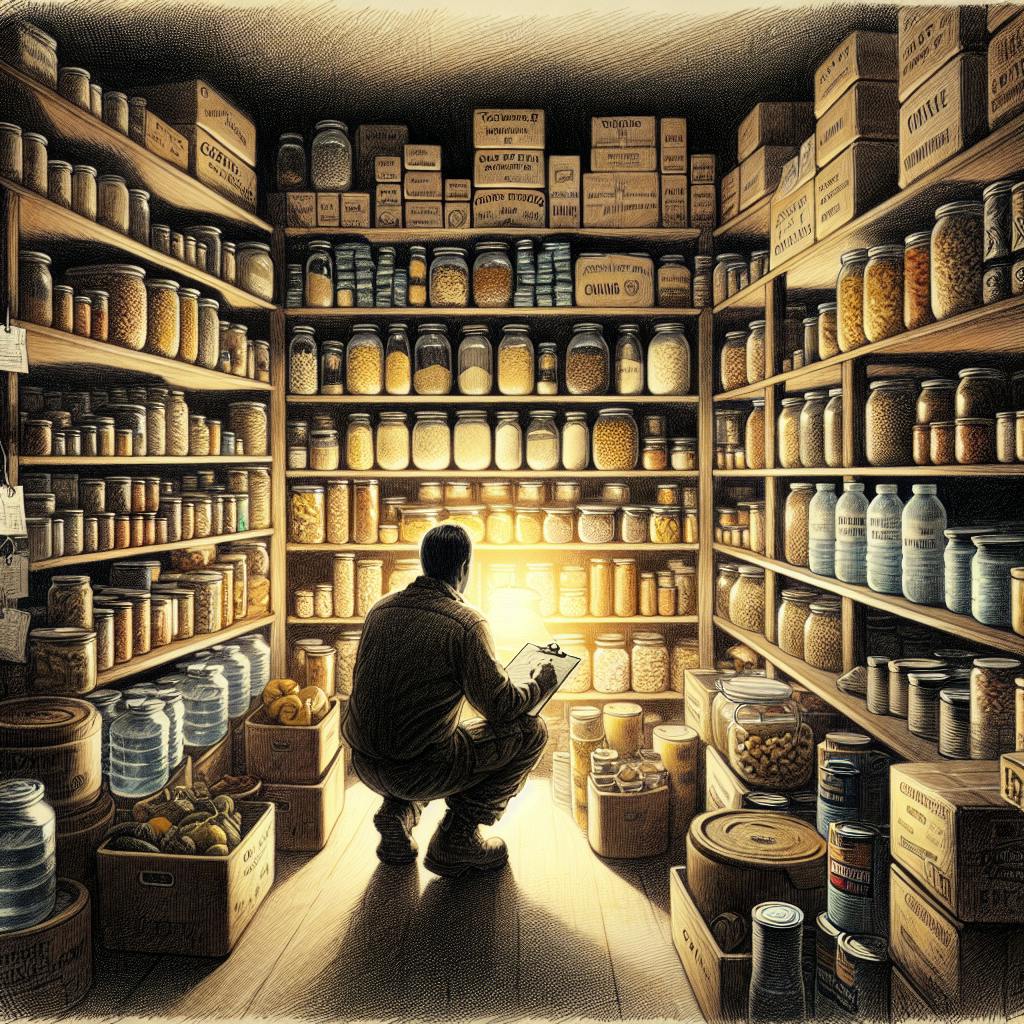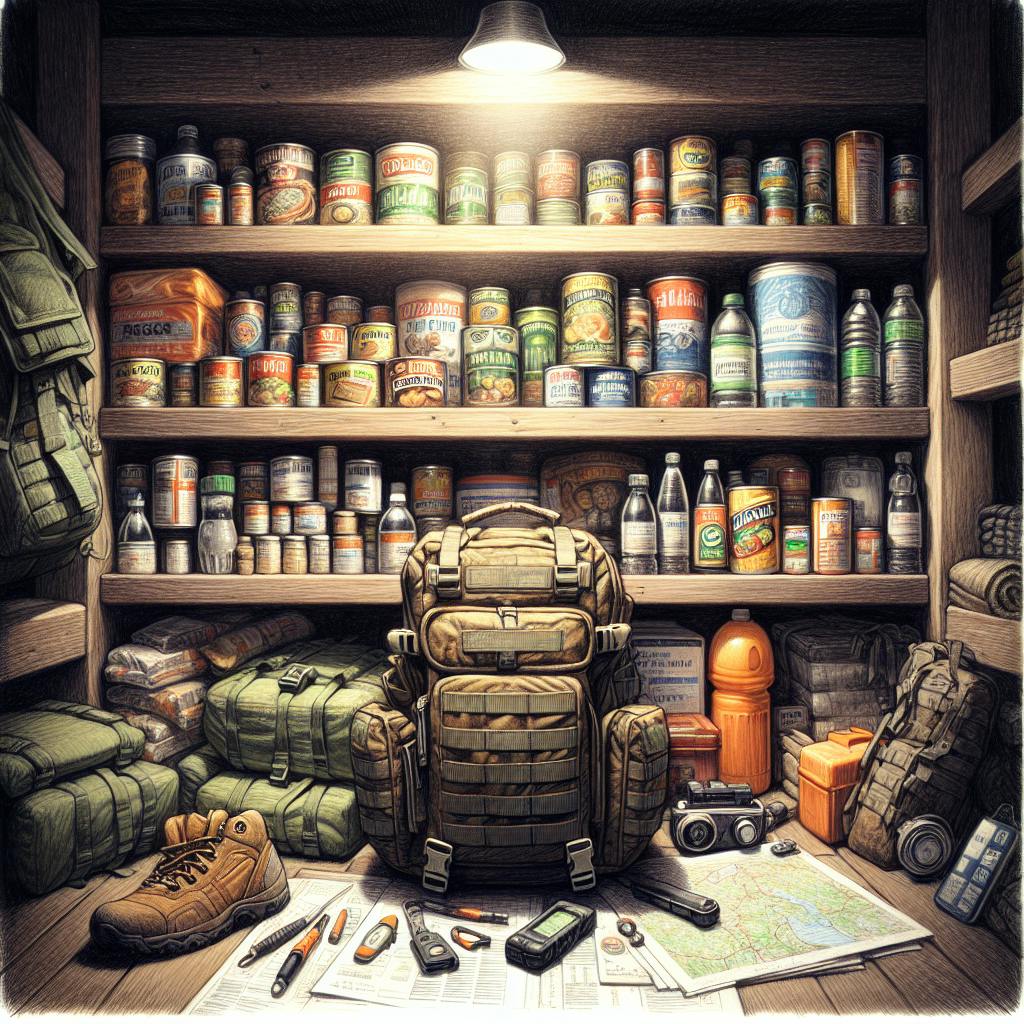Introduction
The Great Depression was a devastating economic crisis that gripped the United States and other countries during the 1930s. It was marked by mass unemployment, poverty, hunger, and despair as family incomes plummeted, jobs vanished, and financial ruin became commonplace.
Many Americans struggled to survive during this challenging decade, and some of the mistakes and missteps at the time exacerbated these hardships. As we reflect on this tumultuous period, it's clear that proper preparation, financial prudence, useful skills, and strong social bonds could have helped mitigate some of the challenges faced by families and communities. The lessons of the Great Depression can inform our efforts to be prepared for future economic crises.
Economic Causes of the Great Depression
-
Overproduction/underconsumption: Too many goods being produced relative to demand. Consumers could not afford to purchase all that was produced.
-
Weak banking system: Many small, rural banks were poorly managed and unregulated. Bank failures wiped out savings.
-
Federal Reserve's poor monetary policies: The Fed failed to expand money supply or provide liquidity after bank panics. This restricted credit availability.
-
Stock market crash and loss of consumer confidence: The 1929 crash shattered faith in markets and caused spending to grind to a halt.
-
Collapse of international trade: The Smoot-Hawley Tariff destroyed trade relations between the US and foreign nations. Global trade plunged over 50%.
Mismanaging Finances
-
Many people lived beyond their means during the 1920s boom. They took on debt to fund consumer spending.
-
Families took on significant debt they couldn't repay when the economy declined. Mortgages and installment loans burdened households.
-
Lack of emergency savings made job loss devastating. Few had cash cushions to withstand income disruptions.
-
Few people had income protection plans or insurance. Lost jobs often meant lost incomes.
-
Poor budgeting skills led to wasteful spending when thrift was needed. People struggled to adapt spending to hardship.
Lack of Self-Sufficiency Skills
-
Many people lacked basic skills for providing their own food, fuel, clothing, and shelter. They relied entirely on buying goods.
-
Urbanization and modernization led to loss of agricultural knowledge. Few city dwellers knew how to grow fruits, vegetables, raise livestock, preserve food, or sew clothing.
-
Most Americans became heavily dependent on buying store-bought goods rather than make or grow them themselves. Even basic necessities came from the store.
-
The unskilled struggled more than those able to hunt, fish, trap, garden, can vegetables, make repairs, or build temporary shelters from available materials. Self-sufficiency was a critical asset.
-
Those who rediscovered forgotten homesteading skills like canning, sewing, carpentry, and animal husbandry fared better. They adapted traditional DIY skills to new conditions.
Mental Outlook and Community
-
Prevalent optimism and faith in capitalism was shattered, damaging morale. Stoic self-reliance gave way to despair and hopelessness.
-
Sense of uncertainty and instability caused long-term trauma for many. Fear and prolonged stress took a psychological toll, leading to anxiety, depression, and suicide.
-
Selfishness replaced community goodwill. People hoarded available goods and price gouged struggling neighbors. Charity dried up.
-
Crime, domestic violence, and suicide increased with the erosion of social bonds and support systems. Isolation led to severe mental health impacts.
Government Policy Failures Worsened the Depression
-
Smoot-Hawley tariff exacerbated collapse of global trade. Retaliatory tariffs from other nations caused US exports to plunge 61% by 1932.
-
Tight monetary policy by Federal Reserve worsened credit conditions. The money supply was not increased despite the crisis.
-
Laissez-faire approach allowed banks and economy to spiral. Lack of government intervention deepened the crises as conditions deteriorated.
-
Lack of deposit insurance led to dangerous bank runs as people panicked to withdraw savings with no guarantees. Over 9000 banks failed by 1933.
-
Ineffective New Deal programs like the National Recovery Administration could not deliver recovery. Some policies even delayed recovery.
-
Insufficient social safety nets left many vulnerable citizens starving. No systems existed to help unemployed and struggling families.
Valuable Lessons for Current Times
The struggles faced by Americans during the Great Depression highlight valuable lessons that can guide our preparedness efforts today:
-
Have a 3-6 month emergency fund with living expenses to withstand job loss or crisis. Cash cushions help in lean times.
-
Avoid unnecessary debt and balance spending with saving. Don't take on obligations you can't afford.
-
Develop useful hands-on skills for providing basic necessities. Cultivate self-reliance and resilience.
-
Strengthen local community connections and mutual aid. Support each other.
-
Advocate for sound economic and social policies before crisis hits. Preventative action is ideal.
Be Financially Prepared
-
Have a rainy day fund with 3-6 months of living expenses to cover bills if you lose income. Cash is essential in emergencies.
-
Reduce debt obligations and discretionary spending. Free up cash flow for emergencies.
-
Diversify assets and investments to manage risk. Don't put all your eggs in one basket.
-
Have adequate insurance for health, property, income etc. Protect yourself from disasters.
-
Develop habits of budgeting, saving, and delaying gratification. Live below your means.
Become More Self-Sufficient
-
Take classes to gain skills in gardening, canning, animal husbandry, sewing, carpentry, and home maintenance. Invest in DIY capabilities.
-
Stock up on tools, seeds, and supplies for providing basic necessities. Prep your homestead.
-
Gradually reduce reliance on store-bought goods. Provide more food, clothing, and household items yourself.
-
Preserve heirloom seeds and learn techniques to grow fruits, vegetables, and livestock. Don't rely solely on the grocery store.
-
Barter services or trade goods with neighbors. Rekindle community interdependence. Let others handle tasks you struggle with.
Build Community Resilience Before Crises Hit
-
Get to know your neighbors and check in on elderly or disabled residents who may need help. Strengthen social bonds.
-
Join a neighborhood watch, volunteer group, or community organization. Don't wait for disaster to strike.
-
Shop local and support small businesses in your town. Keep resources circulating locally.
-
Share extra resources, skills, tools, and knowledge. Generosity and goodwill multiply in hard times.
-
Plan networks for food assistance, childcare, job training, and healthcare. Proactively build community connections.
Advocate for Wise Policies
-
Vote for leaders who will safeguard social safety nets. Support programs that help people in need.
-
Demand prudent oversight and regulation of banking and financial sectors. Prevent excessive speculation and risk taking.
-
Lobby for government job creation, training programs, and infrastructure projects. Push for a resilient economy.
-
Petition for strategic stockpiles, disaster readiness programs, and emergency plans. Urge proactive preparation at federal and local levels.
-
Vote locally for resilient infrastructure and policies that strengthen your community. Advocate at all levels.
Conclusion
By learning from the past struggles of the Great Depression, we can take proactive steps to be financially, mentally, and physically prepared for potential future economic crises. Developing self-reliance skills, strengthening community connections, building emergency savings, and advocating for sound policies can help us withstand hardship. Though we can't predict the future, we can certainly prepare for it.


